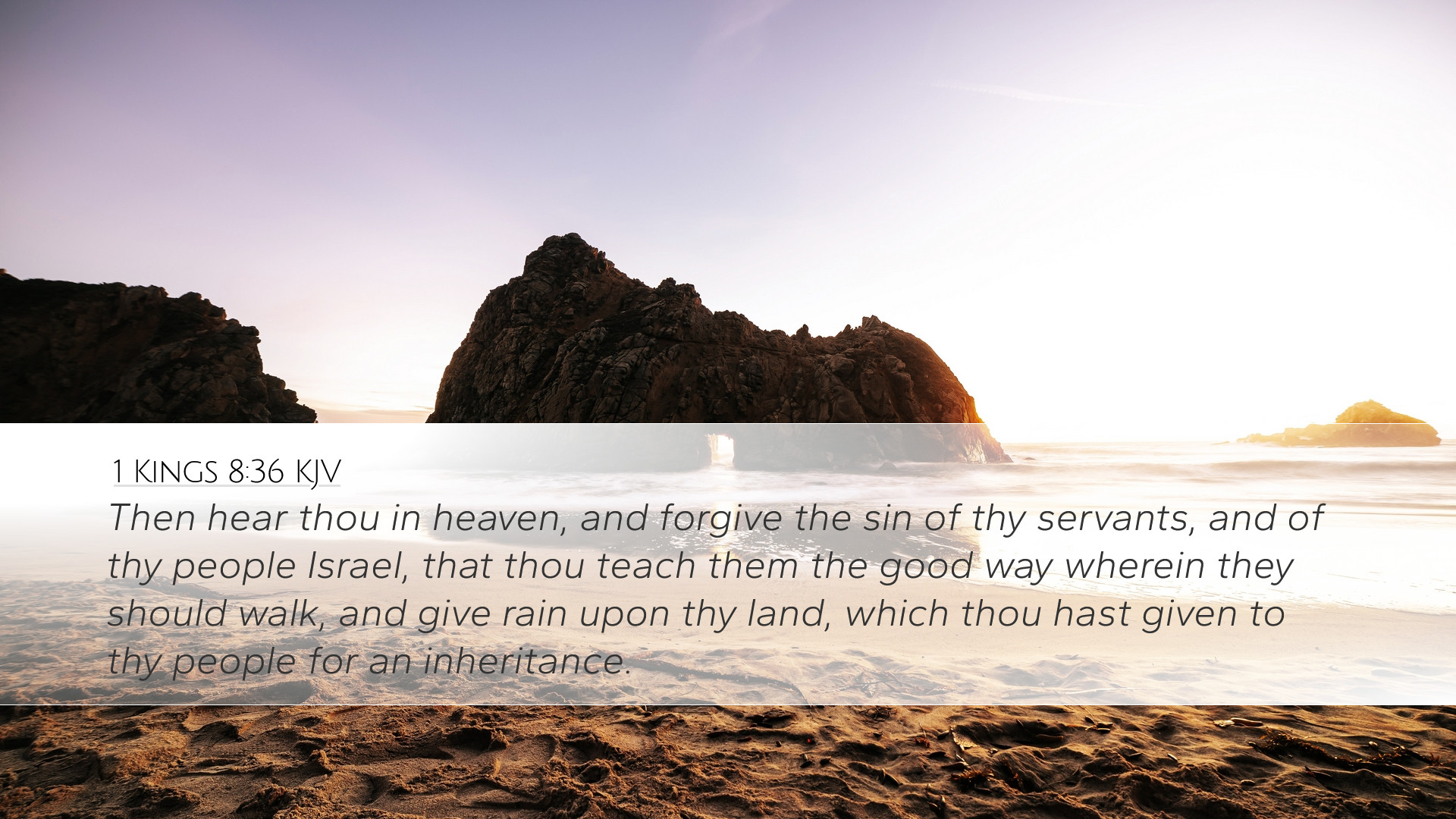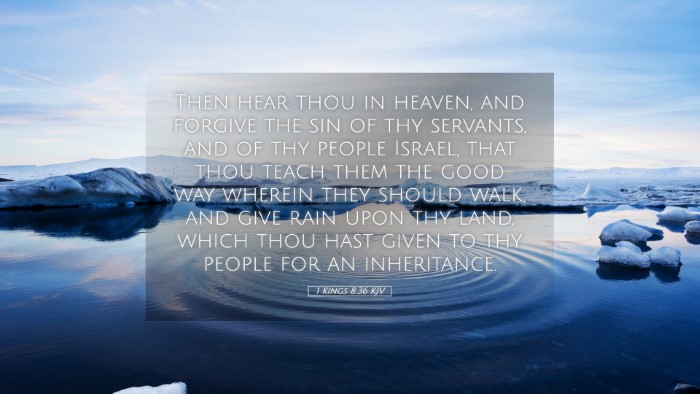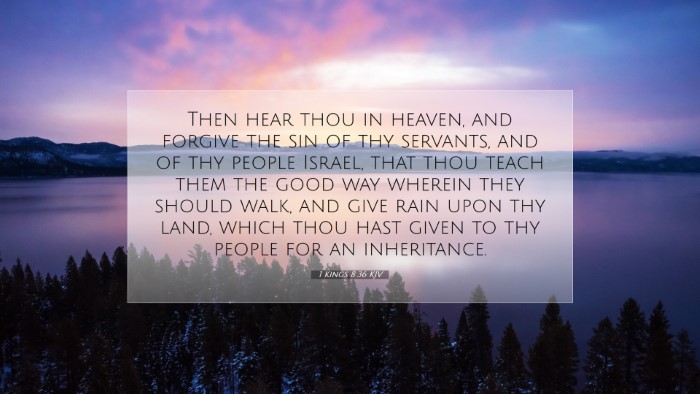Commentary on 1 Kings 8:36
Verse: "Then hear thou in heaven, and forgive the sin of thy servants, and of thy people Israel, that thou teach them the good way wherein they should walk, and give rain upon thy land, which thou hast given to thy people for an inheritance."
Understanding 1 Kings 8:36
This verse captures a profound plea for divine intervention and forgiveness, reflecting the pivotal moment when Solomon dedicates the temple he has built in Jerusalem. It is a moment of covenant renewal and reflects the deep understanding of the relationship between God and His people.
Contextual Analysis
The dedication of the temple is not merely a ceremonial act; it is a recognition of God's presence among His people. Solomon, as the king, acknowledges the sins of Israel and seeks God's mercy on behalf of the nation. He understands the significance of a holy place for a holy people.
Key Themes
- Divine Hearing: The first part of the verse underscores God's omniscience. Solomon appeals to God, emphasizing His ability to hear prayers from heaven.
- Forgiveness of Sins: The request for the sin of servants and the people illustrates the collective nature of sin and the need for communal repentance.
- Divine Guidance: Solomon seeks God's instruction on the 'good way' for His people, indicating that divine direction is crucial for living a righteous life.
- Physical Provision: The request for rain symbolizes God's provision for His people’s physical needs, connecting spiritual and physical sustenance.
Commissioned Insights
Matthew Henry's Perspective
Henry highlights the importance of prayer in accordance with God's will. He notes that this verse represents the need for divine grace to acknowledge human shortcomings. He emphasizes that true repentance must lead to tangible actions, urging believers to follow the right path and avoid sin.
Albert Barnes' Commentary
Barnes emphasizes the communal aspect of the prayer. He explains that Solomon's plea is a model for leadership in prayer, advocating for the inclusion of both leaders and followers in seeking God's grace. Furthermore, he points to the agricultural significance of rain in Israel, linking it to God’s covenant promise to provide for His people.
Adam Clarke's Analysis
Clarke offers an insightful interpretation regarding the nature of sin and its consequences. He stresses the significance of the Israelites' repentance as a prelude to receiving God's blessings. Clarke also addresses the theological implications of this plea, noting how the acknowledgment of sin leads to a deeper understanding of God’s mercy and provision.
Implications for the Church Today
The prayer of Solomon serves as a template for contemporary church practices. Pastors can draw from this verse to teach congregants about the necessity of seeking God’s guidance, acknowledging sin, and pursuing righteous living. The notion of collective responsibility in prayer remains relevant, urging the church to unite in seeking forgiveness and blessings.
Practical Applications
- Prayer Meetings: Organize regular prayer meetings focused on communal repentance and seeking God’s guidance.
- Teaching Series: Develop teachings centered around the themes of sin, forgiveness, and divine provision, using Solomon’s dedication as a foundational text.
- Community Involvement: Encourage the church to actively participate in community service that reflects their commitment to walk in God’s ways.
Theological Reflections
1 Kings 8:36 illustrates essential theological tenets:
- Soteriology: The need for forgiveness underscores the core Christian doctrine of salvation and grace.
- Eschatology: The prayer invokes hope for future restoration and blessings, reflecting a promise of God’s eventual faithfulness.
- Ecclesiology: The emphasis on collective prayer and guidance points to the nature of the church as a communal body seeking God’s will.
Conclusion
In essence, 1 Kings 8:36 serves as a powerful reminder of the interplay between God’s mercy, our human sins, and the necessity of relying on divine guidance. For pastors, students, theologians, and scholars, this verse is a profound call to deep spiritual reflection and collective action in prayer and life, reinforcing the need for ongoing relationship with God through repentance and reliance on His provision.


